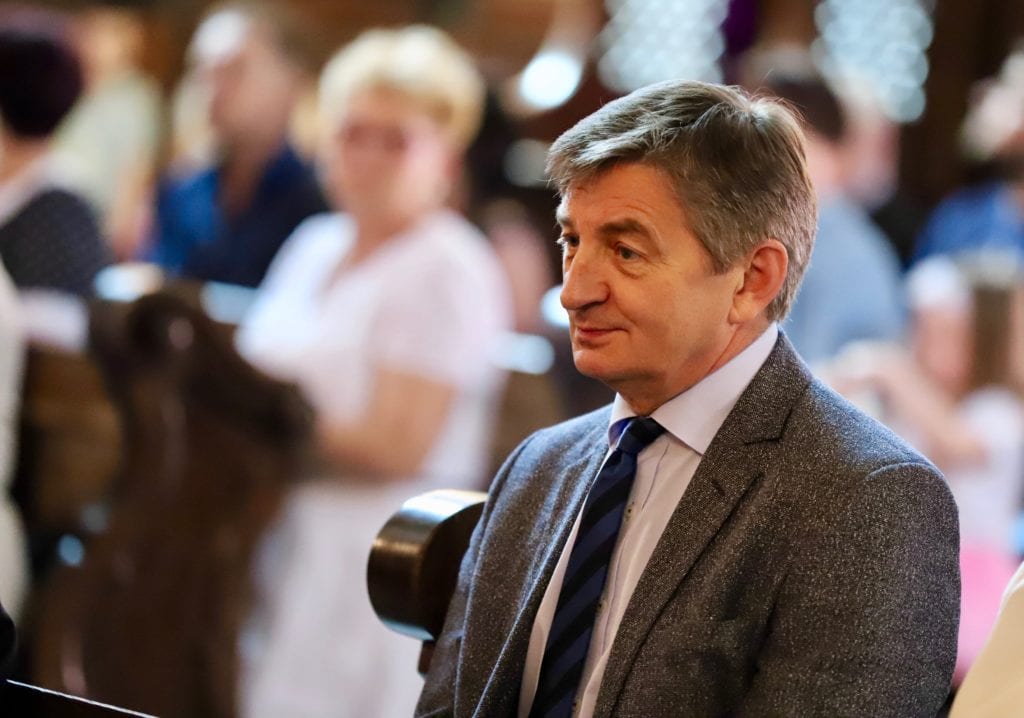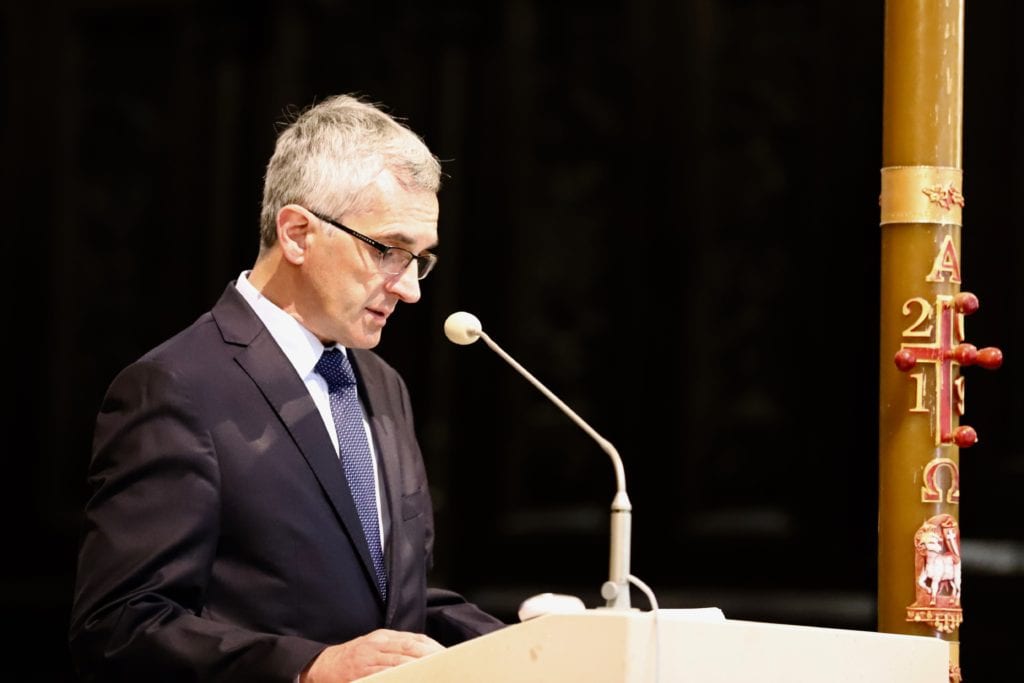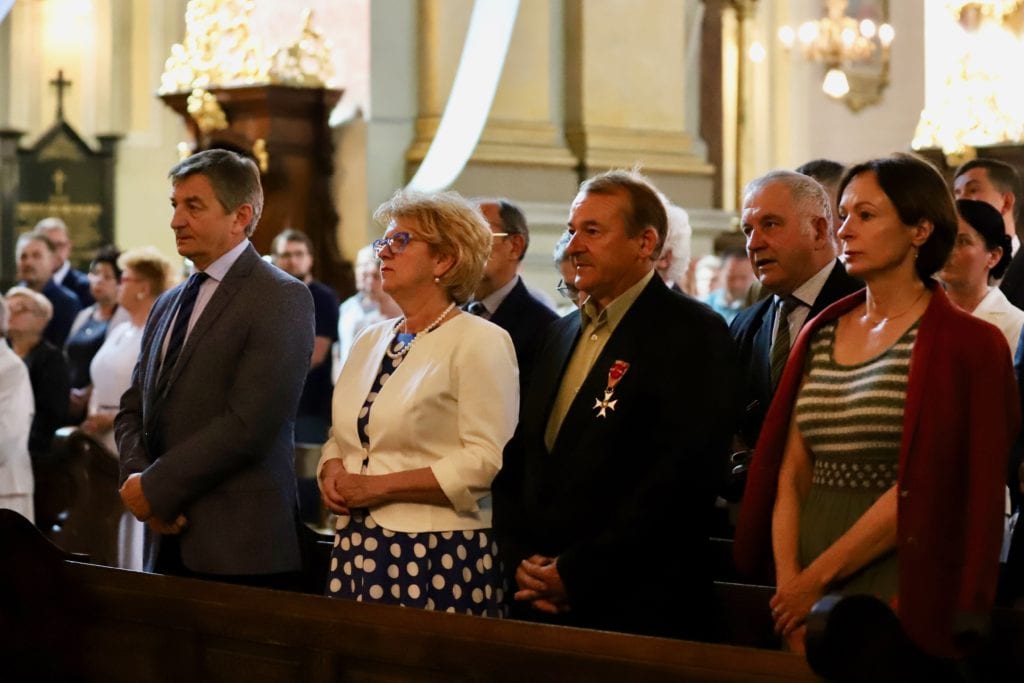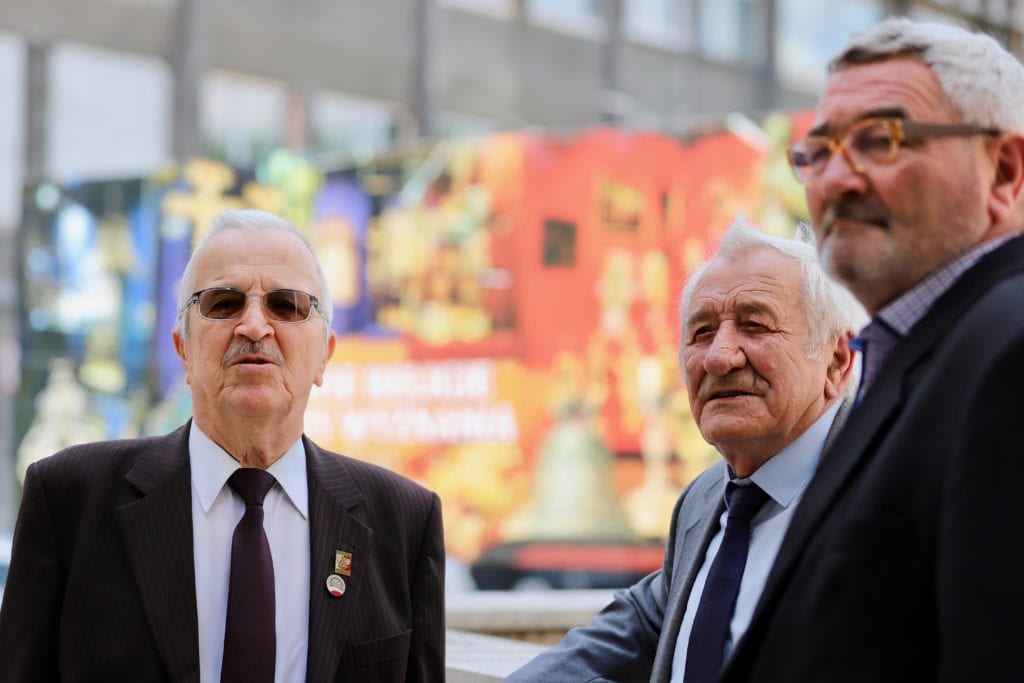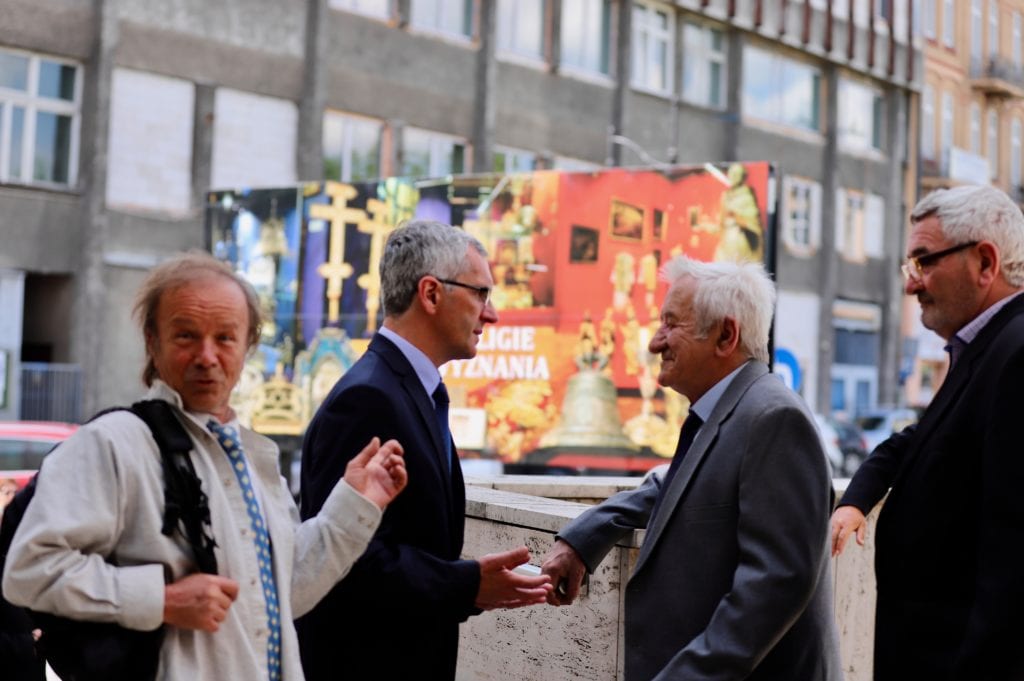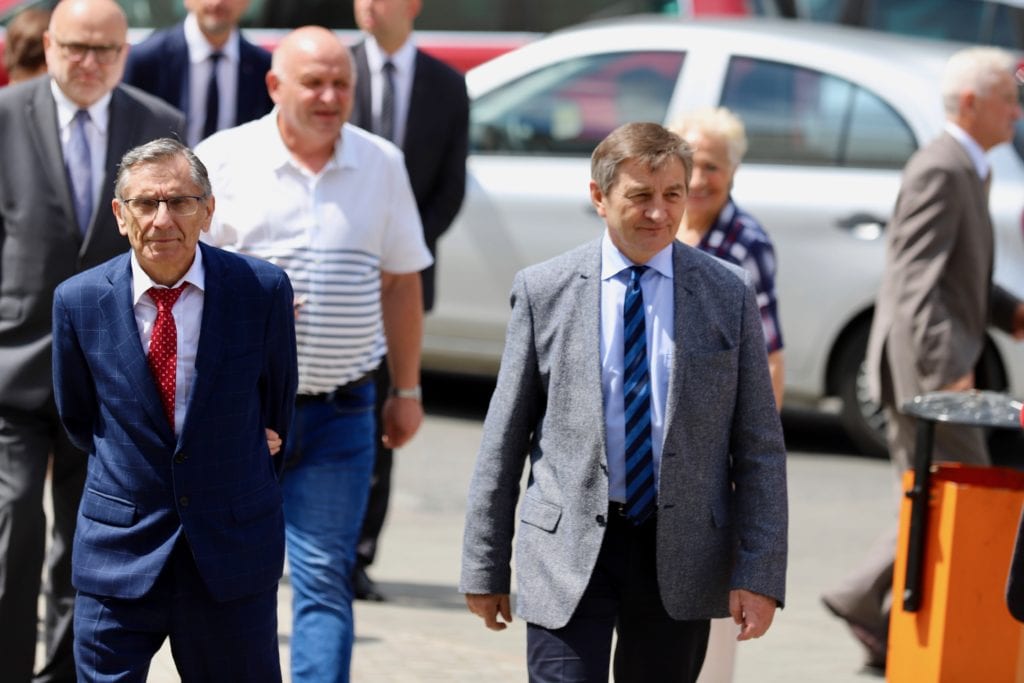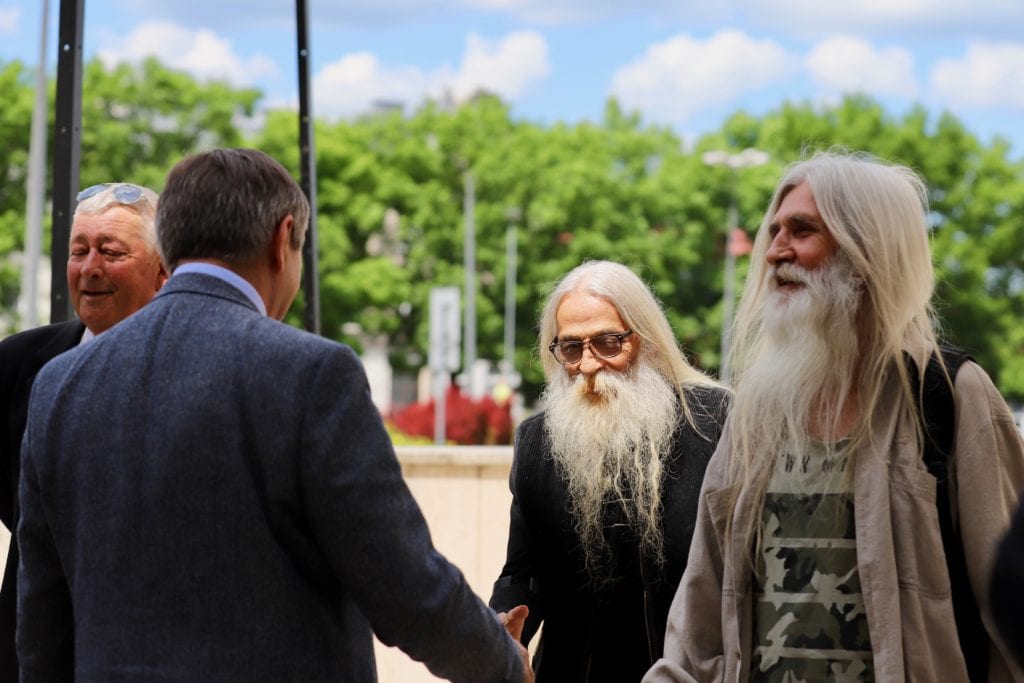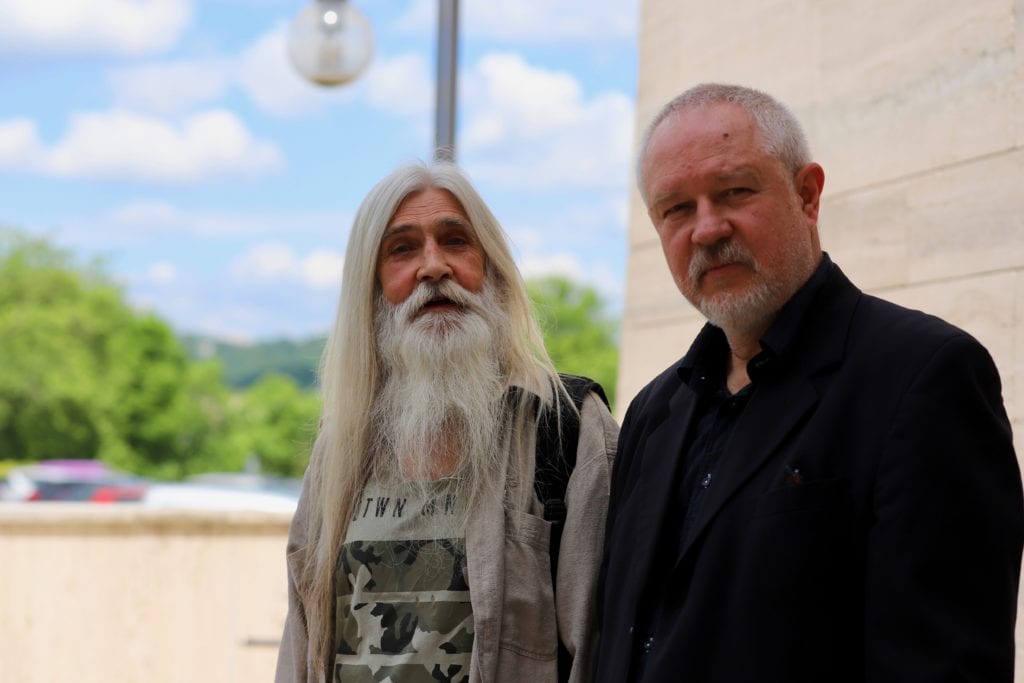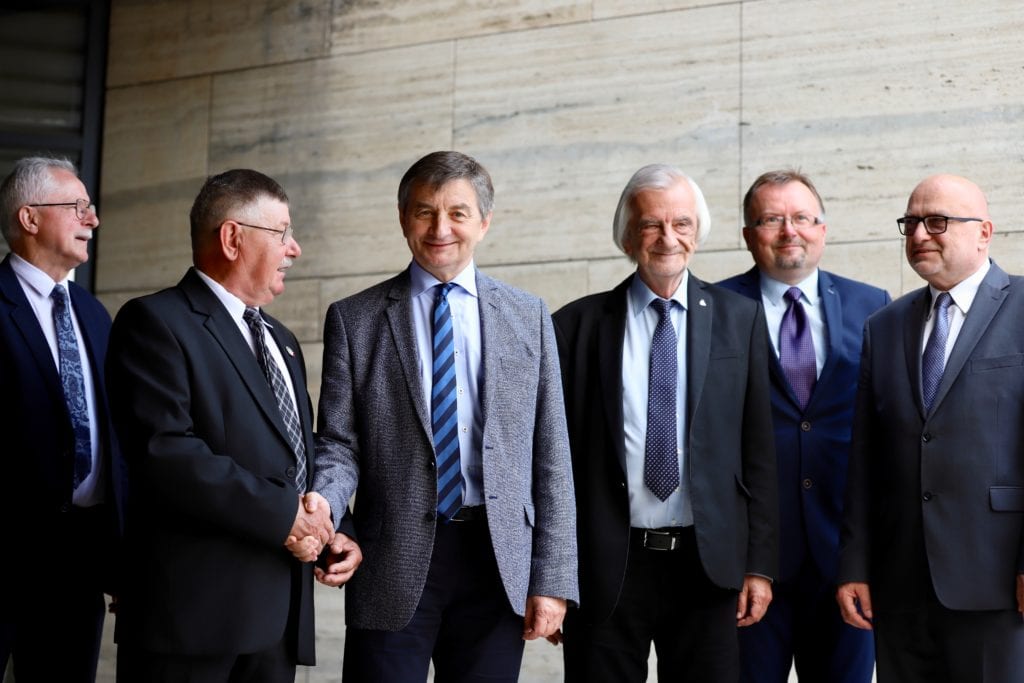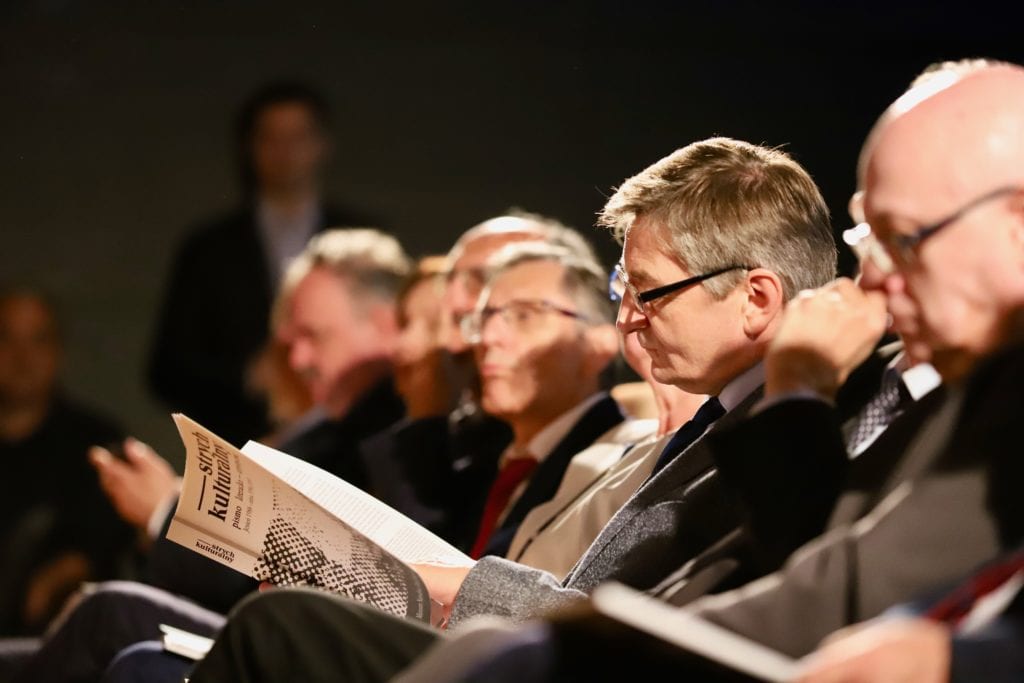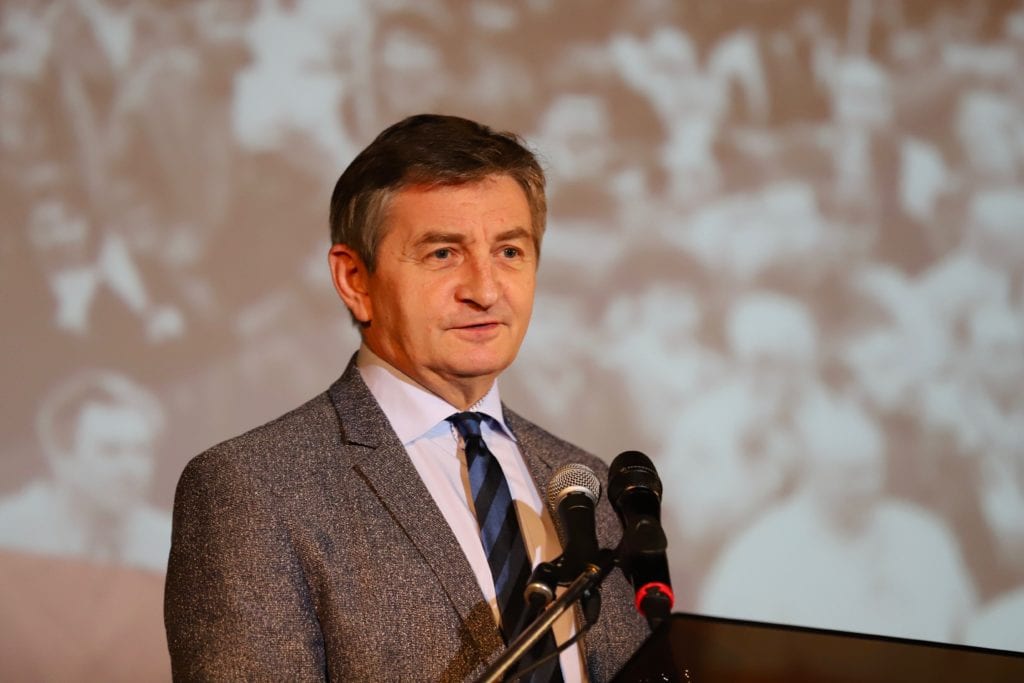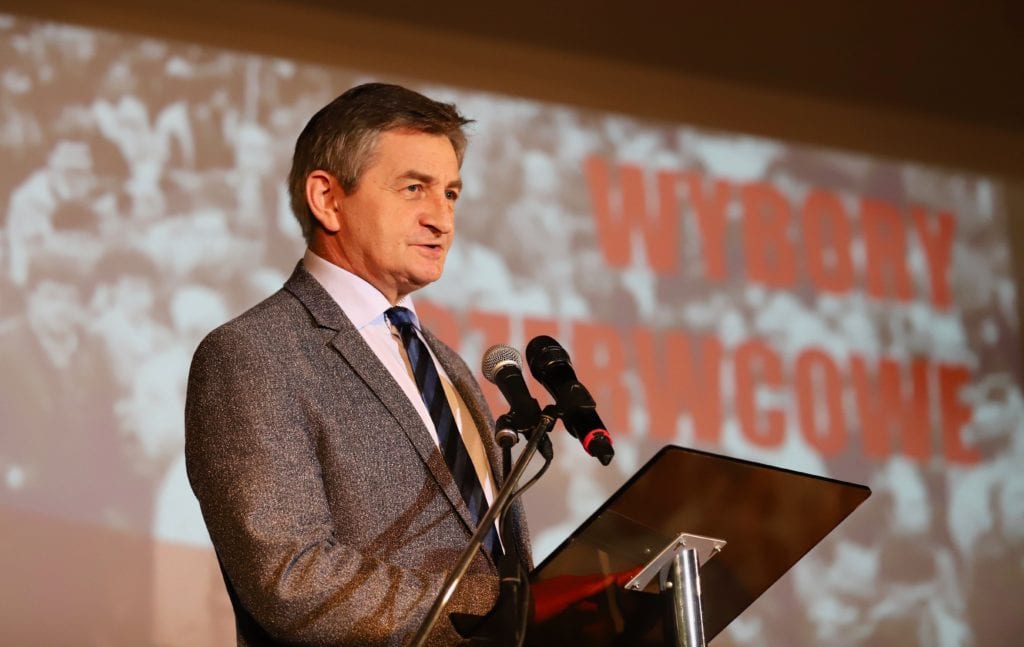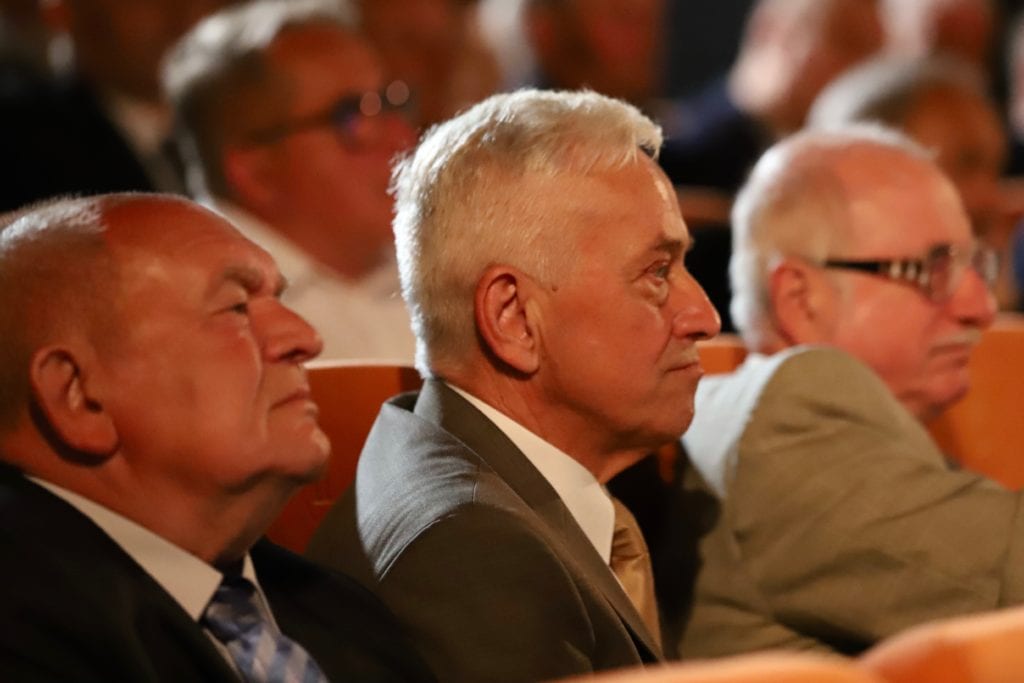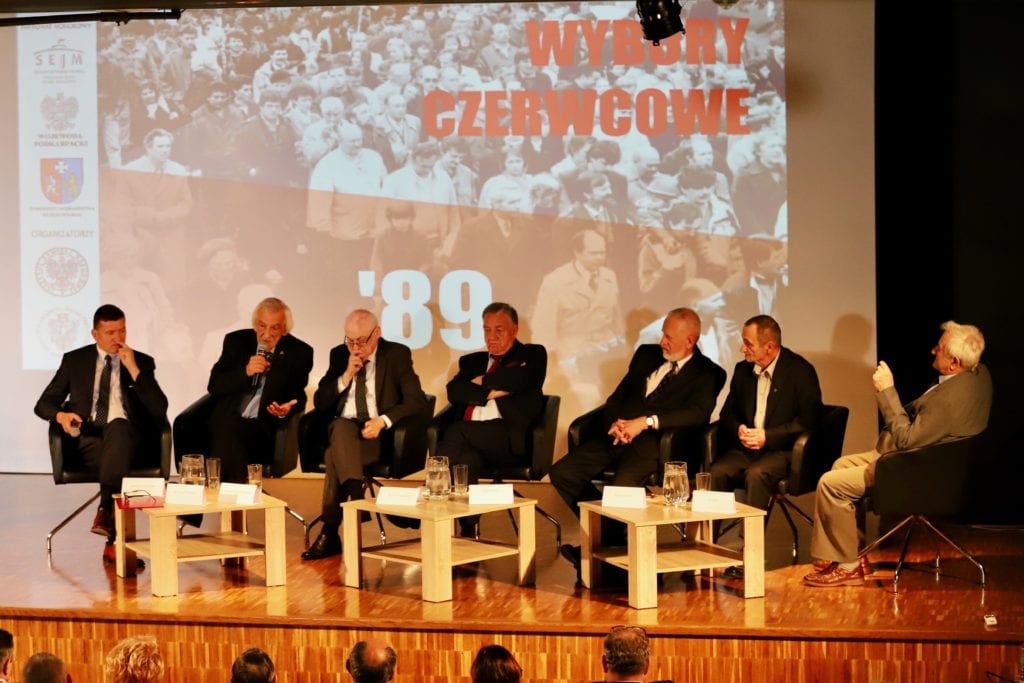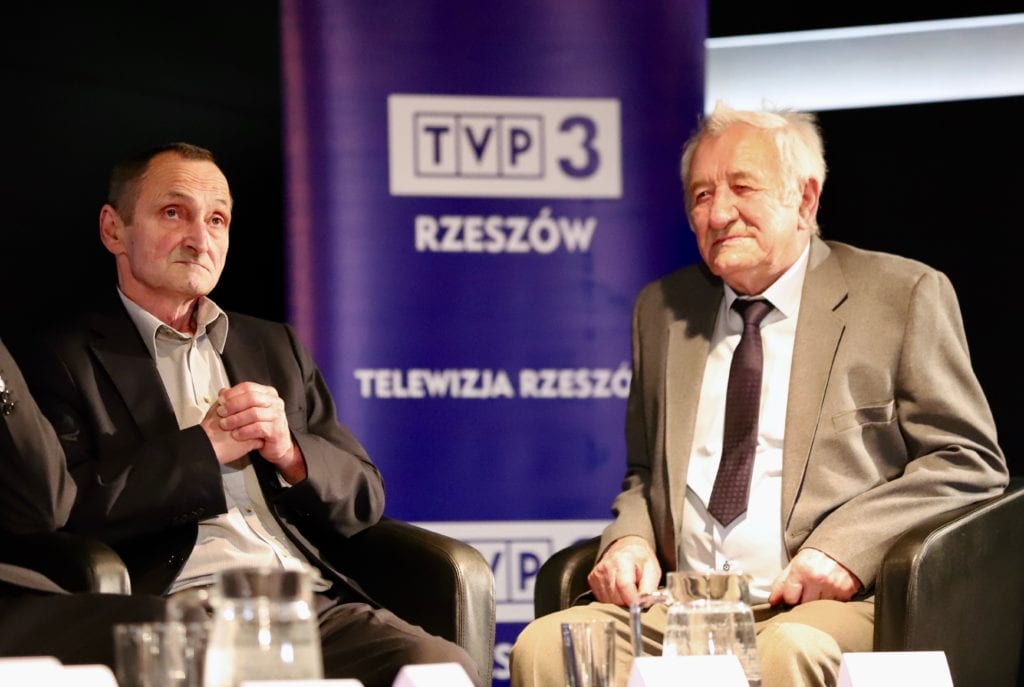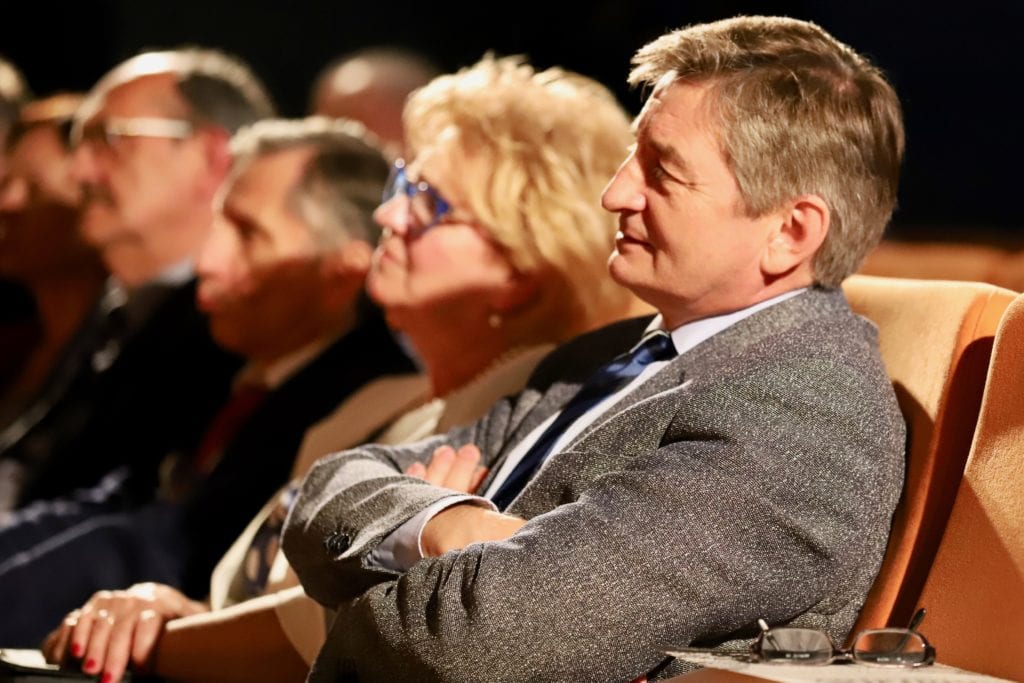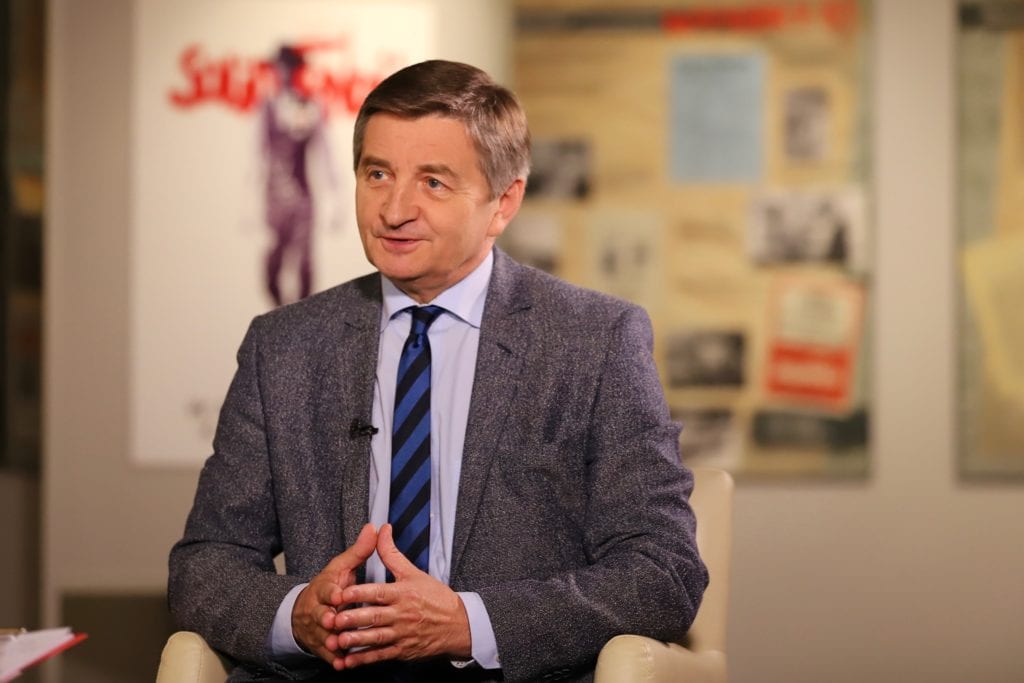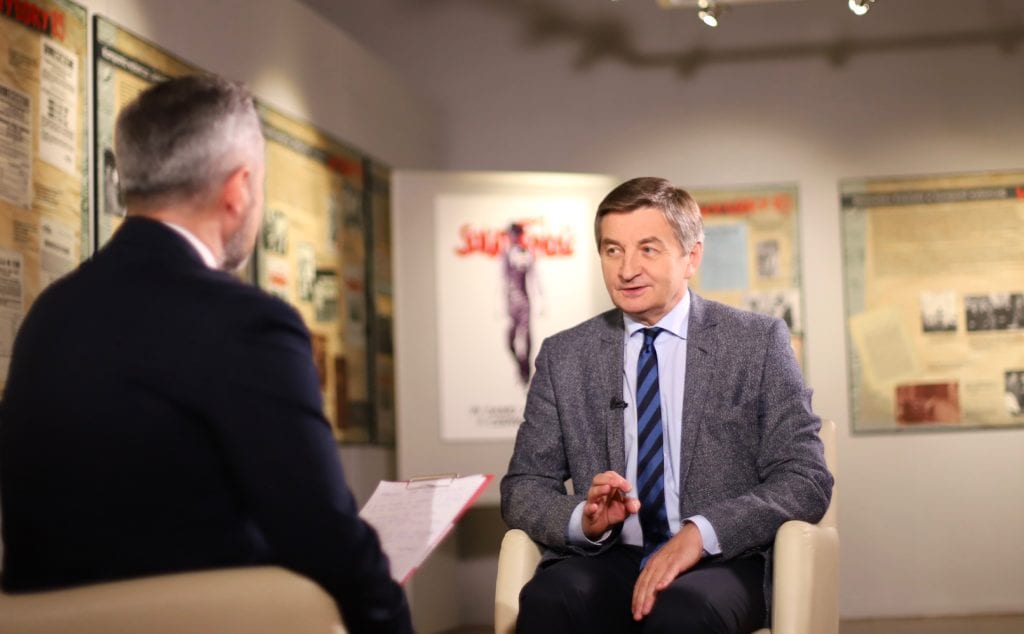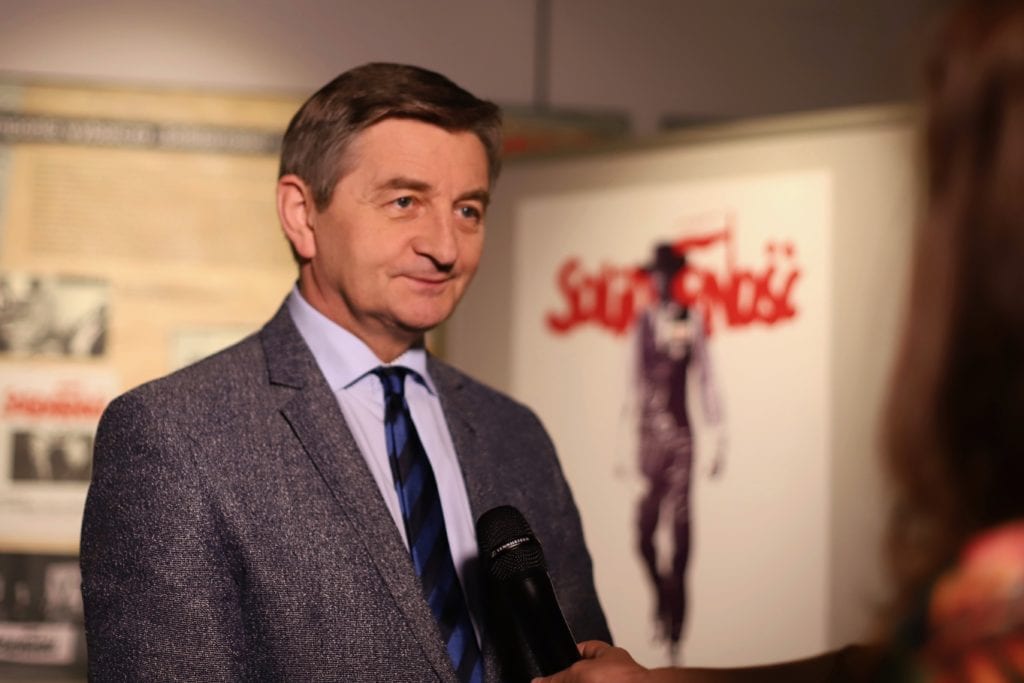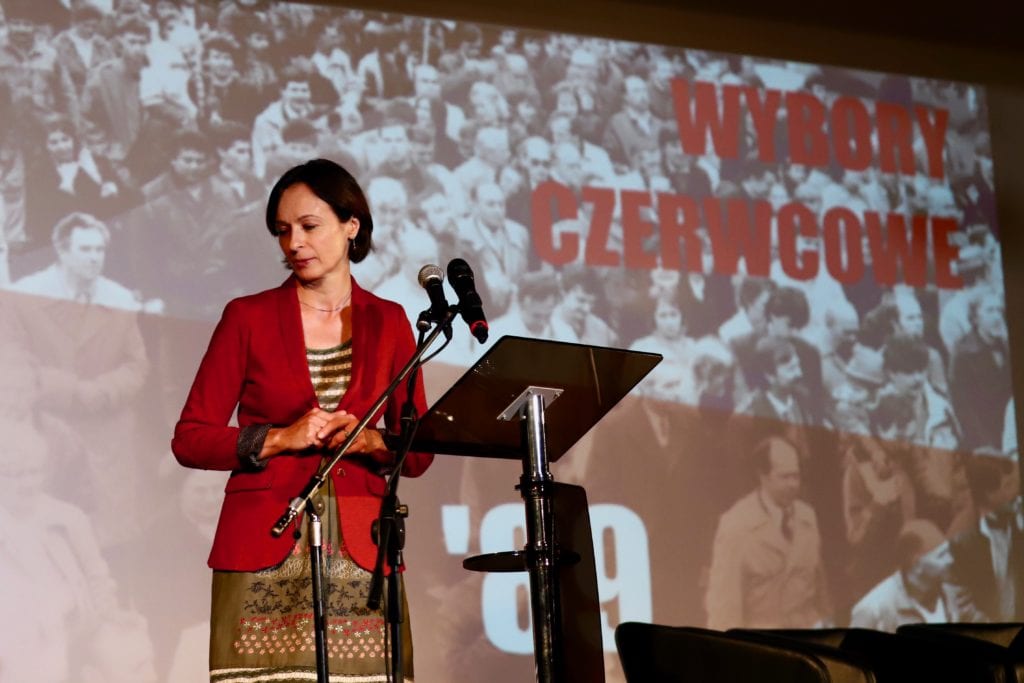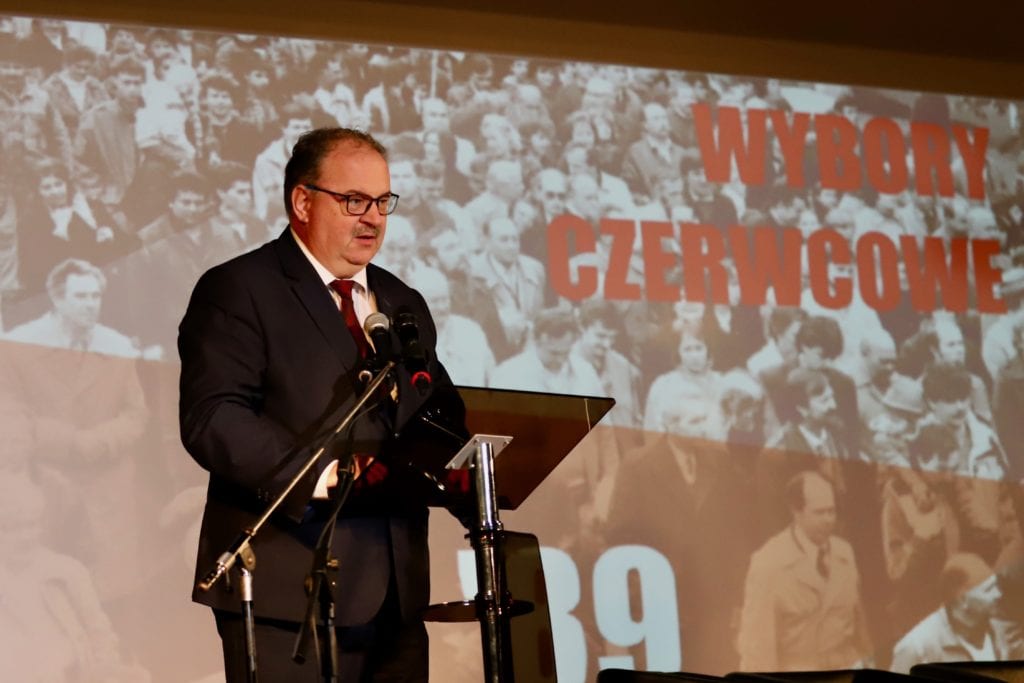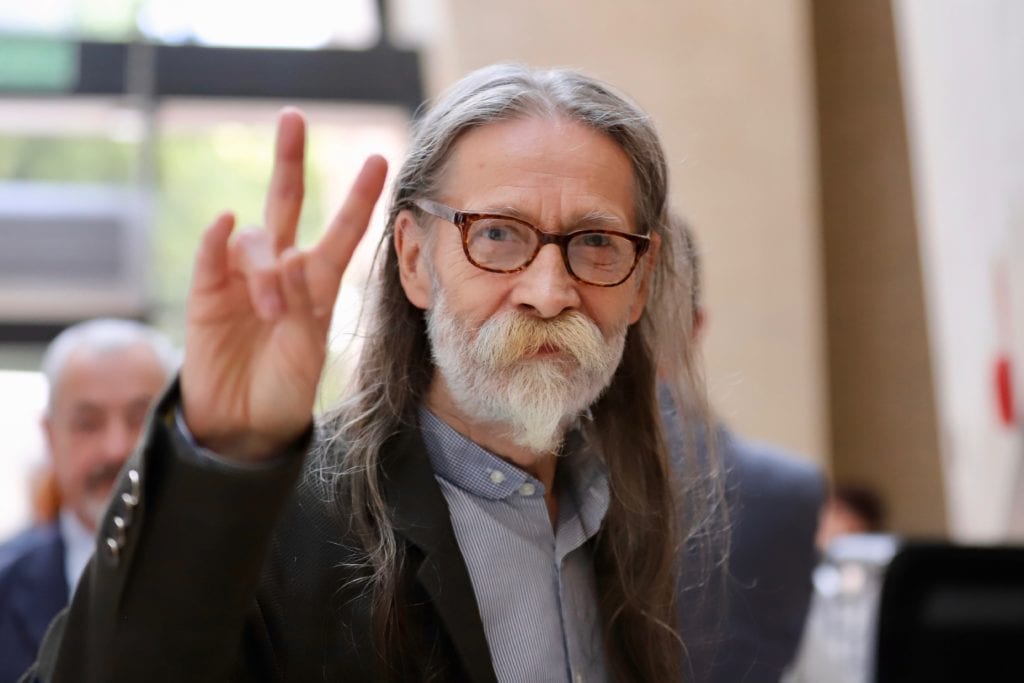- June '89 was one of the most important events not only in Poland, but also in Europe. Today we recall a time that is strongly connected with the history of Poland," said Sejm Speaker Marek Kuchciński during a debate at the National Museum of the Przemysl Region on the 30th anniversary of the first partially free elections.
The Marshal argued that in each generation we work to strengthen our homeland. He recalled the times of the Polish-Lithuanian Commonwealth, when nobility assemblies were held, as well as beautiful alliances. In the nineteenth century during the Hungarian Spring of Nations several thousand volunteers from the Przemysl region, including high school students, broke through the Carpathian Mountains to join Wysocki's and Dabrowski's Legions and there to take the Hungarian side in the fight for freedom and independence. Later we had the evidence of the Hungarian support when during the defense of Lvov (1918) the Hungarians sent us several wagons of ammunition, or later in 1920 in the fight against the Bolsheviks, where despite being weakened by partitions they supported us as the only country, sending whole depots of ammunition. The Marshal emphasized that Przemyśl is a symbolic place where the love of freedom has accompanied its inhabitants for centuries. - We achieve great successes when we act according to the concept which includes everything that is most precious to us, that is the concept of solidarity. In his homily Bishop Tokarczuk emphasized the importance of the concept of solidarity. Alone we can do little, but together we are a force," said the Marshal. - It is with humility that I fulfil the function that I have been given and I always think that I do it on behalf of all those with whom we worked in the 1980s and later, in the name of solidarity', Marek Kuchciński argued.
The debate was attended by representatives of the world of politics, science, but also by those who in 1989 and before took on their shoulders the hardships of the struggle against communism, and later on the building of democracy. Speakers included Professor Ryszard Terlecki, Professor Zdzisław Krasnodębski, Professor Jan Draus, Dr. Jan Musiał, Jan Karuś, and Marek Kamiński.
Dariusz Iwaneczko, director of the Institute of National Remembrance in Rzeszów, said that the assessment of what happened between June 4 and 18, 1989, is ambiguous. For some, it was the consequence of the initiated dialogue and the victory of reason, for others it was a soft landing for the ruling camp, getting rid of the ballast and sharing with the selectively chosen opposition, the consequence of a kind of contract, or one of the phases of the rationed revolution. Some speak of the beginning of the systemic transformation. Most circles agree that it was a social plebiscite and opposition of the communist power camp.
Jan Karuś, who was the head of Solidarity in 1989, said that the time of martial law was the most important period in the lives of those who fought against communism. At that time there was an enemy and someone to fight against, and the fight was effective. Unfortunately, according to Karusia, the struggle within Solidarity ended tragically. At the next election, the candidates agreed upon at the round table won. From a movement that numbered 12.5 million, just over two million remained. Today's period, however, gives hope to the Poles for the future...
Marek Kaminski, the chairman of the Regional Executive Committee of NSZZ "Solidarity" in Przemyśl, emphasized that he considered the Round Table negotiations and leading to elections as a success. However, according to him, a mistake was taking the election out of the hands of the weak Solidarity, breaking the unity and establishing civic committees. - We won the elections, but with such enormous public support for the opposition as a country we lost," said Kaminski. - We were played by another force - the secret police and the WSI. We are far behind the Czechs, Hungarians... This is still the case today," said Kaminski.
Dr. Jan Musial, elected senator in '89, drew attention to the mechanisms used by the SB - slander and manipulation repeated year after year - stressing that the purity of the message is as important today as it was in the past.
Prof. Jan Draus showed the falsifications that were committed by the authorities of that time: amendments during the election gave 65 percent of seats to communists, the election of Jaruzelski for president took place during betrayal: special delays and absences of members of parliament... Another betrayal was putting forward Geremek's candidacy for prime minister. Tadeusz Mazowiecki was finally elected Prime Minister, but the most important ministries were given to the communists.
Prof. Zdzisław Krasnodębski pointed out the lack of understanding of our processes and over-simplified message about Solidarity and the overthrow of communism outside the country. Apart from the history of betrayal, manipulation and control, Prof. Krasnodębski sees one more aspect of those times - naivety towards the West.
Deputy Speaker of the Sejm Professor Ryszard Terlecki recalled that he belonged to the circles that opposed the Round Table, and he considered the agreement with the communist regime as a mistake. He added that his circle also considered boycotting the June elections. - Fortunately, this did not happen. In his opinion, the mistake made by Solidarity's environment lay in Leszek Balcerowicz's reforms, which opened the way for Poland to the West, but allowed communists to keep their assets. Summing up, Terlecki indicated that June 4 should be a celebration of those who went and said enough to communism.
text/photo. M. Olejnik
